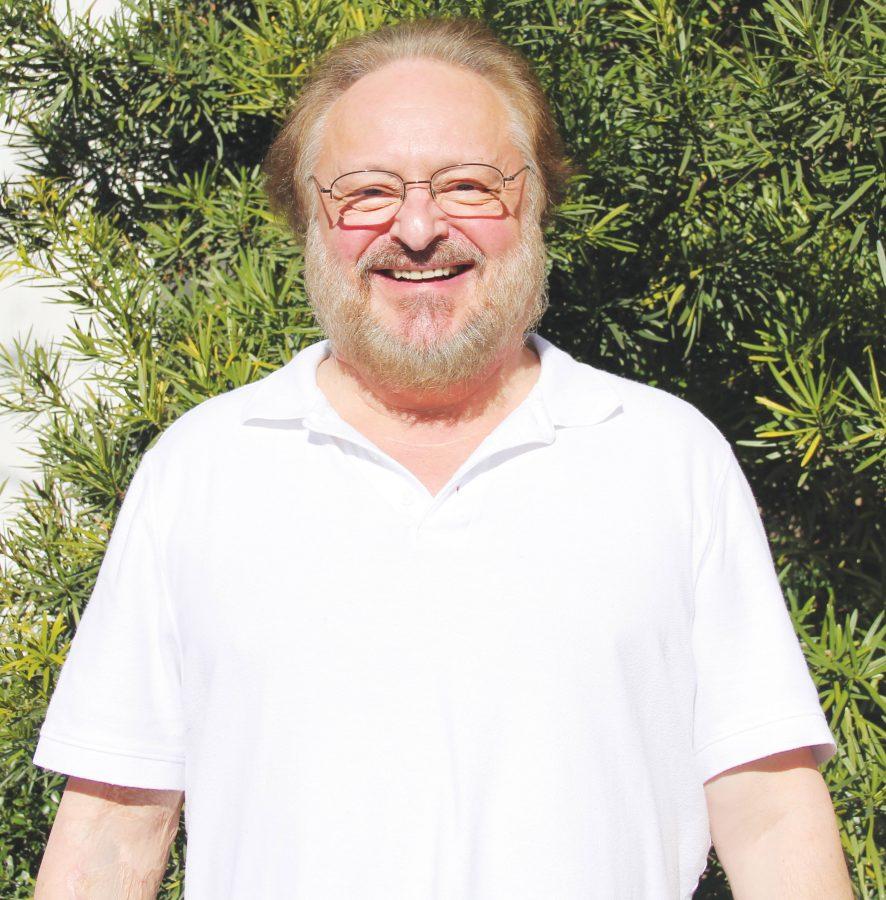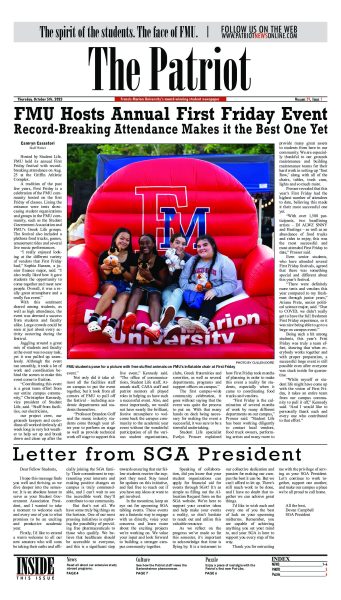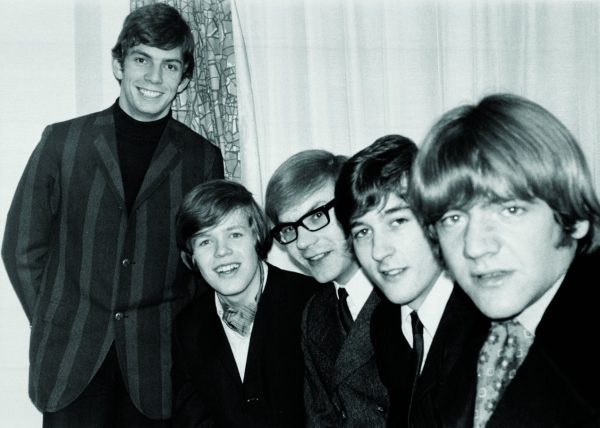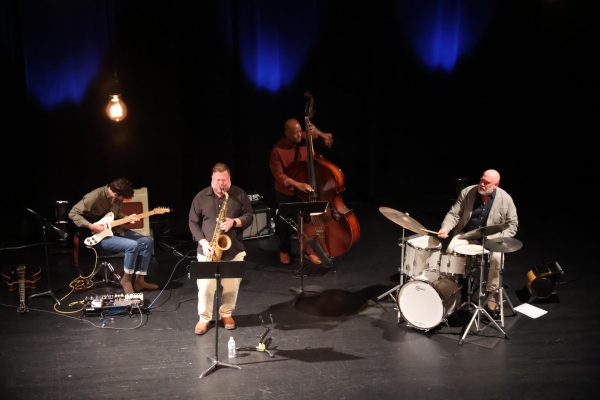Professor Spotlight: Dr. David Cowles
Photo by: Christina Xan
Apart from teaching English at FMU, Dr. David Cowles plays piano and bird watches in his spare time.
After a horrific experience with a flesh-eating bacteria, English professor Dr. David Cowles has gone down in medical history as the man with the worst recorded case of a flesh-eating bacteria who lived through the condition. After this life-changing, and almost life-ending, experience, Cowles knew that he wanted to make an impact on students’ lives.
“I wouldn’t change that experience for anything, but I wouldn’t go through it again for anything, either,” Cowles said.
Cowles said his illness gave him the courage to finally move forward in his teaching career and his personal projects, one of these projects being an autobiography titled “Miracle Victory Over the Flesh-Eating Bacteria” that recounts his fight for his life.
Cowles said that the experience changed his perspective of many different areas of life, including his professional career.
“The book was a way to make sense of the horrifying things I’d experienced,” Cowles said. “And laying in the hospital bed, having almost died, I realized how much of a teacher I really was. At the time, I was in a place where I couldn’t ask questions, and this experience gave me the strength to move on.”
This new-found strength eventually brought Cowles to FMU, and since his arrival, students and faculty have been inspired by his work both in and out of the classroom.
Aside from his usual responsibilities as an English professor, Cowles has served on a multitude of committees for the FMU English department, designed courses on literary theory and published articles in Norton Critical Editions of Classic Novels. Cowles said that one of his most time-consuming, yet rewarding projects is a text covering literary criticisms titled “The Critical Experience: Literary Reading, Writing, and Criticism.”
“I chose to start working on this text when I saw that some of my best students weren’t able to read literature in the ways they should have been able to,” Cowles said. “I was put in charge of a class and wanted people to look at literature from different ways – or different entrances, as I like to call them.”
Cowles is currently perfecting the third edition of “The Critical Experience” for a new publication deal with Palgrave Macmillan Publishing Company. Cowles said that, before “The Critical Experience” was accepted to be distributed by large publishing companies, he and the other authors of the text’s first edition had to self-publish the textbook.
Because of Palgrave’s acceptance and its international status, however, “The Critical Experience” has the chance to be distributed all across the world in almost every English-speaking country. But many students at FMU who have taken upper-level English courses may have already seen some sections of previous editions of “The Critical Experience” as required texts for certain courses. Many professors, including Cowles himself, have used the text as a requirement, and most students report having positive experiences with the text.
Cowles said that most texts covering literary criticisms and theories are simply too advanced and hard to understand for most people, especially students still beginning to read literature critically. He believes “The Critical Experience” is a good resource for students because, when he and the other writers were first beginning to draft the text’s chapters, they wanted to use the most student-friendly terms and examples to explain difficult literary criticisms and concepts that would be difficult to comprehend otherwise.
Despite the difficulties that “The Critical Experience” faced during its early self-publication years, Cowles is proud of his publication history.
“I don’t think I’ve ever been completely turned down for the publication of any of my works,” Cowles said.
This perfect publication track record is promising for one of Cowles’ other current projects: a novel titled “Juniper Woman.” He is also fine-tuning a fully drafted book titled “Victorian Fiction and the Languages of Self Deceit.”
Despite all of the professional obligations Cowles has at FMU as a professor and researcher, he still manages to meet the needs of his large family and finds time for some of his favorite hobbies: collecting first editions of classic texts and playing piano.
Cowles said that one of the most important aspects of his life is helping his students grow and learn while continuing to grow and learn himself.
“My job is not to tell you how to think, it’s just to make you think outside of the customary boundaries,” Cowles said. “And I hope that I can help my students grow and learn every day, just like I keep learning from them.”





